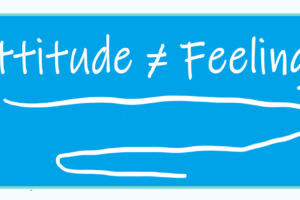Comments from Kathryn, the author of this blog and a licensed clinical social worker. The following is a brief excerpt from my book, Crush Your Stress: 302 Coping Skills for Managing Your Stress. As a licensed clinical social worker (LCSW), I wrote this book because I saw many clients in my therapy practice struggle with restful sleep and sleep-related problems.
Quote on Sleep: “It is a common experience that a problem difficult at night is resolved in the morning after the committee of sleep has worked on it.”
John Steinbeck (1902-1968)
Quote on Sleep: “The amount of sleep required by the average person is five minutes more.”
Wilson Mizner (1876-1933)
Sleep. Just say the word and toddlers will run away screaming, “Nooooooooo!” Say the word “sleep” to an insomniac or a parent of twins or a student cramming the night before an exam, and their reaction will be, “What is sleep?” No one is neutral about the subject of sleep.
Without enough restorative sleep, you will probably not be able to conquer life’s many trials and tribulations. It is imperative to have good sleep hygiene to manage stress.
Childhood and Sleep
Much of what you learned and lived in childhood concerning sleep is what you have brought into adulthood. Did you wake up with an alarm? Did you have a bedtime routine? Did you have a TV in your bedroom? Was your bedroom your sanctuary that no one entered without your permission? Did you share a bedroom and have to compromise (or fight!) with a sibling?
What did you learn from your parents or caregivers about sleep? What did they role-model to you about healthy sleep hygiene patterns (a regular bedtime, using an alarm to wake up during the workweek, needing a cup of coffee upon waking “to function”)?
When you were growing up, was there domestic abuse in your home? Did you wake up in the middle of the night to the sounds of shouting and sobbing, the breaking of dishes or furniture, the slamming of doors, or fists going through sheetrock? Did it prevent you from sleeping through the night? Did the abuse prevent you from leaving your bedroom to use the bathroom and did you wet your bed or pajamas?
What did you learn about sleep patterns from spending the night at a friend’s house? Did your friend have different ideas about a sleep routine? Was it easier or more difficult to sleep at your friend’s house? If you wet the bed until you were 8 or 10 years old, how did that affect sleeping over at a friend’s house?
The Impact of Sleep Disturbances on Relationships
In addition to restorative sleep being good for managing stress, it also has an impact on your relationships with others. The next time you feel irritated, short-tempered, or abrupt with your partner or spouse, stop and think about how well you have slept in the last couple of days. How well has your partner slept? If the answer to either question is that one of you has slept less than 7 hours at night, chances are good that the irritability is due to a lack of sleep.
Sleep affects the part of the brain that helps you solve problems. This is why if you are tired, it is harder for you to concentrate at work, drive a car, successfully problem-solve situations, and interact with others in a healthy manner. If you have a conflict with your partner or spouse, and one or both of you are tired, it will be much more difficult to peacefully resolve problems concerning money, sex and child-rearing. While more sleep may not solve relationship problems or make conversations about differences of opinion blissful, it may lubricate the process.
Childhood Sleep Patterns Challenged
In adulthood, the sleep patterns we acquired in childhood may be challenged based on the involvement of sleep partners:
- A new sleep partner due to a new relationship or marriage
- A sleep partner who is absent due to being in the military or divorce or death
- A sleep partner that is a dog or cat that crowds you, or wants to wake you to play
- A child who co-sleeps with a parent or parents, or a child who crawls into your bed in the middle of the night
- A newborn in your bedroom or a newborn sleeping in his/her own bedroom, with a sleep monitor on your nightstand
- A sleep partner who “steals all the blankets”
- A sleep partner who is a “night owl” while you are an “early bird”
- A sleep partner who snores or has a restless leg
- An abusive sleep partner
Relearning how to sleep well will take effort.
Five Sleep Coping Skills
If your goal is to wake up feeling refreshed in the morning, there are skills you can utilize to improve your sleep. Some of these skills you may have heard of (and even tried!), while other ideas may be new to you. Not every idea will work for every person.
Bedding
While it may seem like a very simple act, making your bed each morning can symbolize an official end to the sleep cycle and a beginning to the day. Getting into a made bed in the evening can give you a boost, especially when the day has been long and stressful.
Your Sleep Environment
Waking up every morning to an alarm can be stressful. There are sunrise light bulbs, lamps and alarms that will let you fall asleep and wake up gently. There are light bulbs mimicking the sun that start at about $15 and sunrise lamps that cost about $125.
Preparation
Sometimes you can achieve a good night’s sleep because you don’t have to worry about waking up in the morning to a tornado of activity in order to get out the door for school and work. Clothes ready for tomorrow? Is the homework in the backpacks?
Routine
Having a bedtime routine helps focus you mentally and physically to gear down from your day for more restful sleep. A change in your bedtime routine can have serious effects on the quality of your sleep.
Visualization
Visualization is a way of distracting yourself from worrying at bedtime. Imagine a spinning carousel representing your mind spinning as it processes the events of the day. Now visualize the carousel slowing down as representing your calmed mind.
What is the worst thing that could happen if you tried one of the above coping skills for just the next week?
Take Away Point
If you are trying to manage stress in your life, maybe improving your sleep will help. There are many reasons for your poor sleep, but there are many coping skills to help you sleep, too! The book Crush Your Stress: 302 Coping Skills for Managing Your Stress can help you with other areas of stress management, too!
With warmest regards,
Thank you so much for reading this blog. If you enjoyed the content, please check out other blogs at:
https://relationshipsrelearned.com/my-blog/
https://rvingnomads.com/blog/
In addition to blogs and articles, I have written a series of self-help books. To view these books, please go to my Amazon Authors Page or go to the Self-Help Books tab at the top of this page.
To be notified of future posts, please enter your email address and click on the Subscribe button.
If you live in the State of Maine or Texas and seeking individual therapy, please go to my Concierge Therapy website: www.kathynmaietta.com
| AI has not been used to create any content for my website, articles, blogs or books. All material is original unless otherwise noted. All photos and graphics within my website and blogs were taken or created by David Harrington or Kathryn Maietta. |












